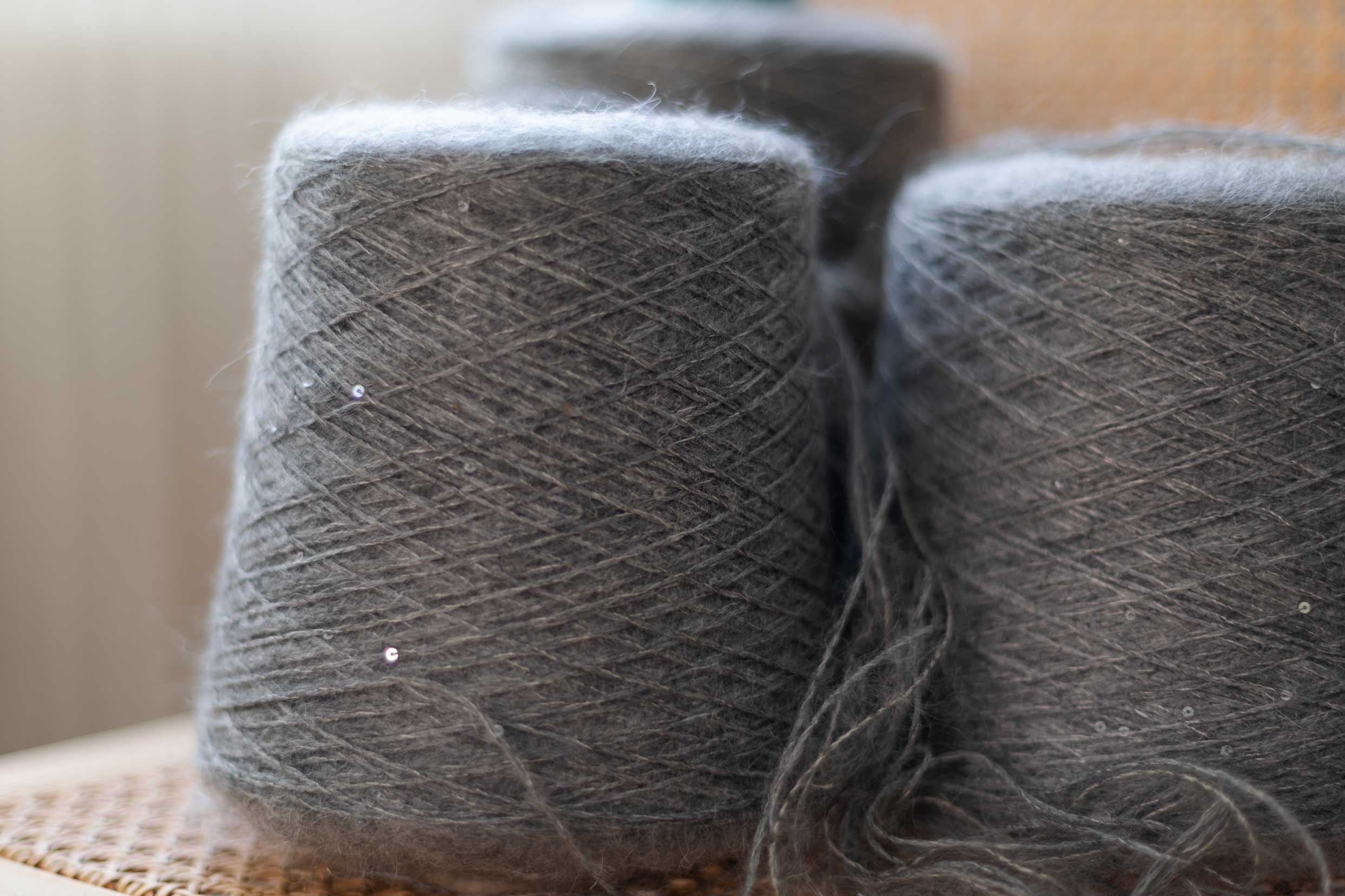Sustainability
Onika-Knitwear embraces the art of slow fashion, weaving a tapestry of timeless designs, sustainable practices, and a deep respect for the heritage of handcrafted garments.
With each creation, we strive to make a positive impact on both our customers and the environment, reflecting the values that define our brand's philosophy.
Buy less, buy better
Our philosophy revolves around the principle of 'buy less, buy better,' emphasising the importance of choosing products that are made to last. This is the best way to reduce the environmental impact of our products. To uphold this commitment, we meticulously produce in small quantities, ensuring each item is crafted with the highest quality yarns.
Supply chain transparency
Continuing our journey towards sustainability, we are sourcing 100% of our yarns from a leading Italian factory that choose raw materials and suppliers that respect biodiversity, animal welfare and land.
The raw materials come from legal and traceable sources in compliance with the international ethical and environmental standards.
Our yarn supplier uses 100% certified raw materials as follows: wool (GOTS, mulesing-free, RWS), alpaca (ethical breeding/ animal friendly, RAS, Alpaca Blend Mark), mohair (cruelty free / animal friendly, RMS).
Our yarn supplier adhered to the commitment 4sustainability® applying the Chemical Management protocol for the elimination in production of toxic and harmful substances upon the MRSL ZDHC (Zero Discharge of Hazardous Chemicals).
The 4S® Protocol provides implementation levels (Ongoing, Basic, Advanced, Excellence), verified annually through a quantitative and qualitative evaluation ensuring the requested requirements. In 2022 they have achieved the CHEM Excellence implementation level.
All our yarn is OEKO-TEX® - 100 certified.
The yarn production chain is mainly powered by sustainable energies.
The yarn factory has reduced the energy consumption by 40% and has implemented sustainable practices to limit water use, hydric and atmospheric pollution, waste and habitat exploitation.
All the yarn we are using in our current collections is produced with a low environmental impact.
Our production
All our knitwear is handmade, by preserving the traditional craft techniques and ensuring that every garment is truly unique. The final products are made locally, in our own atelier, where we are able to ensure that every step of the production process meets our quality standards.
We keep a very low stock and we limit the production to minimise waste, by focusing on producing only what is needed.
Climate friendly shipping
We ship climate friendly with DHL GoGreen as much as we can (depending on the destination).

Supply chain transparency
-
Raw Materials
We are sourcing 100% of our yarns from a leading Italian factory that choose raw materials and suppliers that respect biodiversity, animal welfare and land.
The raw materials come from legal and traceable sources in compliance with the international ethical and environmental standards.
-
Certified Yarns
Our yarn supplier uses 100% certified raw materials as follows: wool (GOTS, mulesing-free, RWS), alpaca (ethical breeding/ animal friendly, RAS, Alpaca Blend Mark), mohair (cruelty free / animal friendly, RMS).
All our yarn is OEKO-TEX®- 100 certified.
-
Low Environmental Impact
The yarn production chain is mainly powered by sustainable energies.
The yarn factory has reduced the energy consumption by 40% and has implemented sustainable practices to limit water use, hydric and atmospheric pollution, waste and habitat exploitation.
All the yarn we are using in our current collections is produced with a low environmental impact.
Glossary
GOTS - Global Organic Textile Standard
Certifies that textile products are made from natural fibres sourced from organic farming, free from synthetic pesticides and genetically modified organisms.
Mulesing Free
Mulesing is a controversial surgical procedure performed on sheep, to prevent flystrike by removing strips of skin around the tail area. The term "mulesing-free" ensures that the wool production avoids this practice, promoting more ethical and animal-friendly treatment of sheep
OEKO-TEX Standard 100
Is a global certification system for testing and verifying that textiles and accessories are free from harmful substances at all stages of processing.
Alpaca Blend Mark
This certification, from A.I.A., a Peruvian non-profit, ensures sustainable and ethical practices throughout the supply chain. It promotes economic, social, and environmental responsibility with a strong focus on protecting both local and global ecosystems.
RMS - Responsible Mohair Standard
Certify that wool and mohair-producing animals are treated humanely and that land management practices are sustainable.
RWS - Responsible Wool Standard
Certify that wool and mohair-producing animals are treated humanely and that land management practices are sustainable.
RAS - Responsible Alpaca Standard
Certify that wool and mohair-producing animals are treated humanely and that land management practices are sustainable.